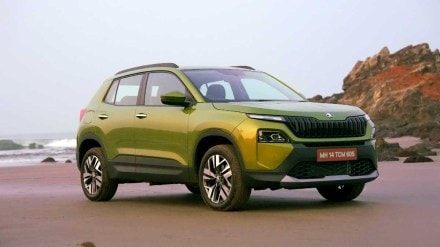Skoda Auto Volkswagen India’s ambitious India 2.0 project, initiated in FY19 with an investment of 1 billion euros by the Volkswagen Group, appears to be losing momentum. Despite launching five new models aimed at boosting sales and gaining market share, the group has managed to secure just a 2% share of the passenger vehicle market in FY25, far from its original goal of 5% by 2025.
The project was envisioned as a comprehensive relaunch of the group’s operations in India, with Skoda leading the charge. It began with a significant phase-out of older models such as the Skoda Rapid and the Volkswagen Polo, Vento, and Ameo, leading to a period of declining sales. Combined sales of Skoda and Volkswagen dropped from 62,716 units in FY18 to 31,759 in FY21. In June 2021, Skoda launched the Kushaq, a midsize SUV, marking the first new model under the India 2.0 umbrella. Volkswagen followed with the Taigun SUV in September 2021.
These launches led to a revival, with combined sales rebounding to 65,863 units in FY22. The momentum continued into FY23 with the introduction of two midsize sedans, the Skoda Slavia in February and the Volkswagen Virtus in June. These additions helped push sales up by 42% that year, reaching 93,595 units.
However, the upward trajectory did not last. In FY24, sales declined to 87,719 units, followed by a slight further dip to 87,098 units in FY25. This resulted in a market share of just 2.02% out of the total 4.3 million passenger vehicles sold in FY25, essentially returning the brand to where it stood at the start of the project, when it held a 1.91% share in FY18. Automotive analysts point to the highly competitive passenger vehicle market and a mismatch between product design and local expectations as key reasons for the slowdown.
Last year, Skoda Auto CEO Klaus Zellmer acknowledged that their cars may have been “over-engineered” for the Indian market, leading to higher price tags that weakened their competitive edge. “We build a car according to our own expectations. They tend to be over-engineered. And that comes at a price tag … that weakens your competitive position,” Zellmer said, while noting that changes were being made. Some signs of improvement have emerged. The Skoda Kylaq, a sub-4 metre SUV launched on January 27, 2025, has performed well.
It has sold over 20,000 units in just four months and helped Skoda post its highest-ever monthly sales in March 2025, with 7,422 units.
Skoda has outperformed Volkswagen since the project’s launch. Skoda’s sales grew from 17,387 units in FY18 to 44,868 in FY25, while Volkswagen’s declined slightly from 45,329 to 42,230 units during the same period. Whether this recent surge can be sustained remains to be seen, but for now, the India 2.0 strategy is falling short of its intended target.
